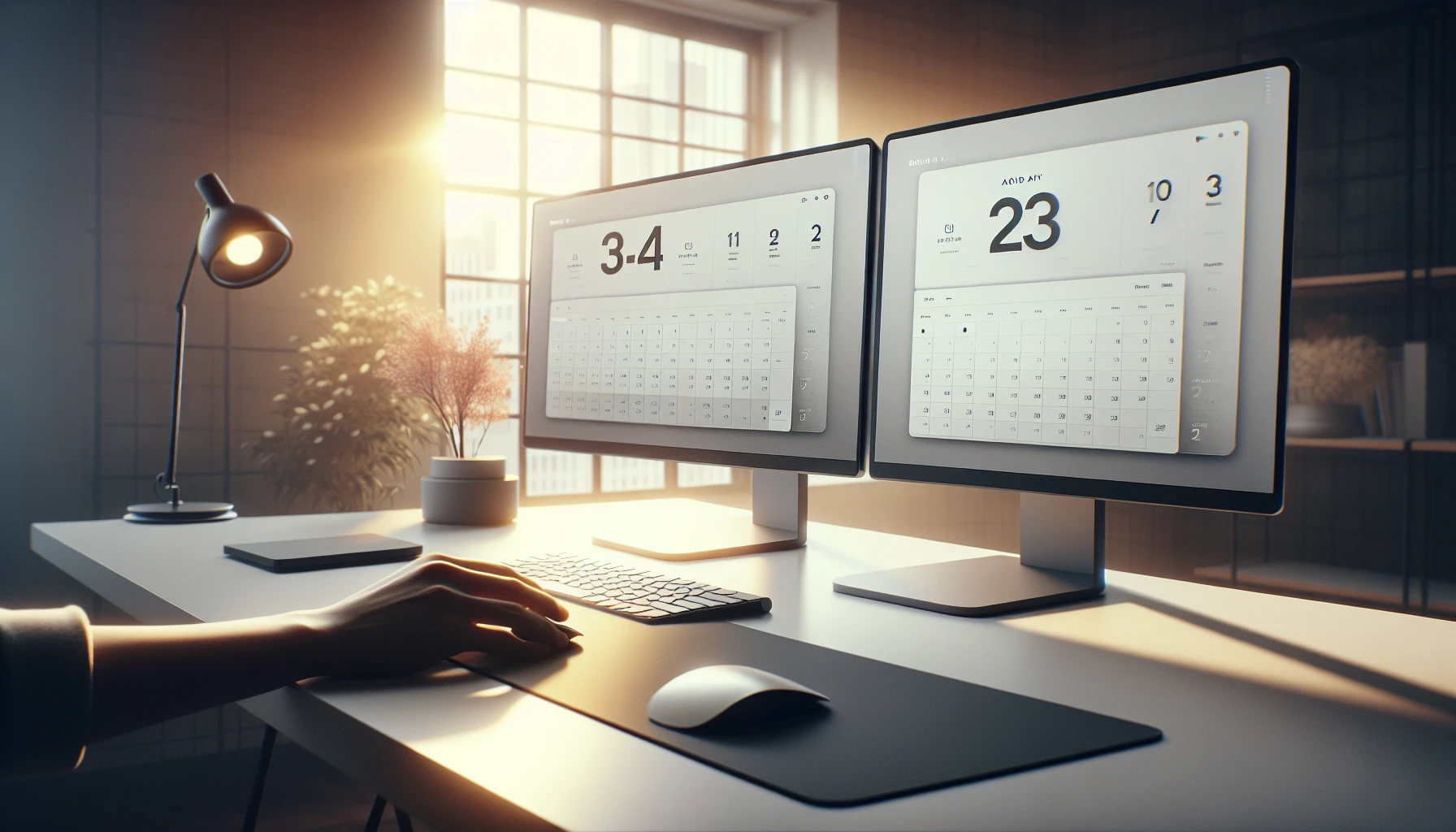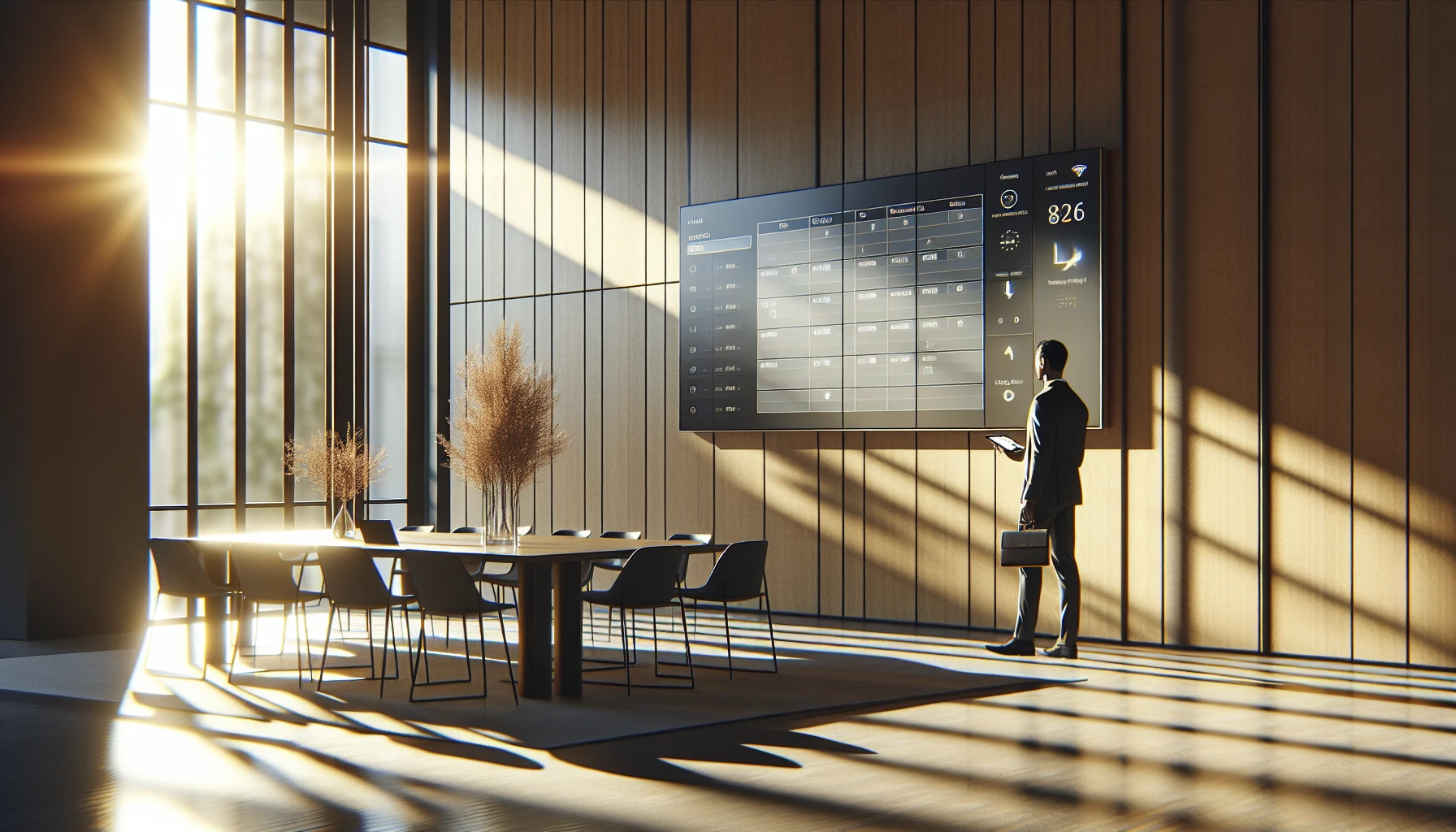· Ricardo Batista · 11 min read
Turn Off Notifications Google Calendar - Stop Clutter
Stop Google Calendar alerts to clear clutter; our quick guide shows easy steps for both desktop & mobile so you focus better.

Trying to clear some clutter and manage your schedule better? Google Calendar notifications can get too noisy sometimes, and turning them off may help you focus on what matters. This guide shows simple steps for disabling alerts on both your computer and mobile, offering straightforward tips to ease your digital routine and reduce distractions in your daily life.
Key Takeaways
- Turning off notifications in Google Calendar can help reduce distractions and help you stay focused
- The process involves easy steps on desktop and mobile, making it simple even for beginners
- Sometimes settings on connected devices need a tweak too, so check them if alerts keep popping up
- Our expertise shines through with features like automatically pinging attendees who arrive late to your meetings, proving we care about smooth scheduling
- Simple adjustments can save clutter and time, keeping your daily routine less stressful and more productive
Overview of Google Calendar’s Notification Settings
Google Calendar sends notifications to help you keep track of your schedule, but sometimes they can get overwhelming, especially if you’re dealing with late meeting arrivals or simply need a quieter workspace. The app uses different types of alerts—email notifications, desktop pop-ups, and mobile banners—to remind you of upcoming events. While these features are useful, not everyone benefits from them continuously. Whether you’re a student trying to focus during study sessions or a professional who needs minimal distractions during meetings, knowing how to adjust your settings comes in handy.
Why You Might Want to Disable Notifications
It might seem counterintuitive, but turning off notifications can actually help you stay on track if you are frequently interrupted. Reasons include:
- Meeting Reminders Control: Automatically pinging those who arrive late to meetings can be managed more effectively if you control the initial flood of alerts.
- Reduced Distractions: Eliminating extraneous pop-ups allows you to better concentrate on your current task—for instance, during in-depth work or presentations.
- Customization: Sometimes default settings don’t match your workflow. Disabling some notifications lets you customize what and when you get alerts while retaining critical reminders.
When to Disable Notifications
In certain scenarios, disabling notifications might be essential:
- During Focused Work Sessions: If you find that multiple notifications break your concentration.
- When Handling Sensitive Projects: Fewer distractions mean you’re less likely to miss crucial meeting details.
- While Collaborating on Virtual Meetings: To avoid confusing reminders while using third-party apps for meeting management.
Turning Off Notifications on Desktop and Mobile
There are several approaches to turning off Google Calendar notifications. Below, we break down the steps for both desktop and mobile, along with tweaks using Gmail filters.
On Desktop
- Open Google Calendar on your browser.
- Click the gear icon in the top right corner to access Settings.
- From the dropdown menu, select “Settings.”
- Click on “Event settings” on the left sidebar.
- Under “Notifications,” select “None” for desktop pop-ups and other unnecessary alerts.
- Scroll down to “Other notifications” and adjust or toggle off additional notifications you no longer want to receive.
If you use your Google Calendar extensively for managing meeting reminders (especially to notify or ping attendees who arrive late), these settings allow you to solely rely on your meeting management system without extra interference from Calendar alerts.
On Mobile
- Launch the Google Calendar app on your device.
- Tap the three horizontal lines in the top left corner to open the menu.
- Scroll down and tap “Settings.”
- Choose the specific calendar you want to update (if you manage multiple calendars).
- Tap “Notifications.”
- Here, disable notifications by toggling off the options for “Event notifications” or changing them to a method that better suits your meeting reminder setup.
For quick control over alerts, sometimes using device-level notification settings may override Google Calendar’s options. Check your phone’s settings if the app notifications continue to bother you.
Using Gmail Filters
If you find that notifications via email are more distracting than helpful, Gmail filters come in handy:
- In Gmail, click the Settings gear and select “See all settings.”
- Go to the “Filters and Blocked Addresses” tab.
- Create a new filter by entering your Google Calendar email address in the “From” field.
- Set the filter to automatically archive or mark as read any incoming Calendar notifications.
This prevents your inbox from being spammed with event alerts, giving you a cleaner, more focused workspace.
Troubleshooting Unwanted Pop-ups and Sync Issues
Even after turning off notifications, you might encounter pop-ups or sync issues with your events. Here are some quick troubleshooting steps:
Identifying the Source
- Check Multiple Devices: Sometimes settings on your phone and computer aren’t synchronized. Ensure you updated all devices.
- Review App Permissions: Some browsers or devices might have separate permissions for notifications that override Google Calendar settings.
- Sync Settings: Confirm that your calendar sync is working correctly so that changes on one device reflect on all others.
Expert Hints
Experts on platforms like Google Calendar Help and Apple Support suggest:
- Revisiting your settings after any app updates since update patches may reset your configurations.
- If using multiple accounts, verify each account’s settings individually as notifications can come from different sources.
- Restarting the device or reinstalling the app might resolve lingering pop-up issues.
Troubleshooting Steps
- Clear Cache: On desktop, clear your browser cache; on mobile, clear the app’s cache to remove outdated data.
- Disable Extensions: Browser extensions can interfere with notifications. Temporarily disable them to test if they’re causing conflicts with Calendar alerts.
- Check Internet Connection: Sync issues might be due to network problems. Ensure you have a stable connection when updating settings.
Advanced Tweaks and Tool Comparisons
For those who enjoy customizing their digital environment further, there are ways to go beyond the standard settings. If you’re looking to fine-tune notifications, consider these advanced options:
Utilizing Google Tag Manager
Google Tag Manager (GTM) is a powerful tool that can be used to manage various event triggers on your website or app. With GTM, you can set up custom rules to suppress certain Calendar notifications that trigger pop-ups on your web pages. While initially confusing, GTM offers flexibility for those who appreciate granular control over their notifications. This is ideal if you are using advanced meeting reminder configurations and need to customize how alerts are triggered.
Samsung Calendar and Ubuntu Setups
Users on different platforms might have different experiences:
- Samsung Calendar: If you are using Samsung’s native calendar app, consider that its settings might overlap or differ from Google Calendar. To disable notifications effectively, adjust both the Google Calendar settings and the Samsung app’s settings. Samsung calendars often allow for more customized alert sounds and notification scheduling.
- Ubuntu: Linux users can refer to community resources like Ask Ubuntu if your Calendar app isn’t syncing properly or is causing pop-ups. Ubuntu setups might need additional tweaks through system settings, where you can adjust notification priorities and manage app permissions.
Comparison Summary
- Google Calendar offers a simple interface but may require additional settings adjustments on mobile devices and desktops.
- Samsung Calendar provides more integrated device-level settings, while Ubuntu relies on community support and manual configuration.
- If you’re integrating meeting reminders that automatically ping attendees for late arrivals, ensuring smooth communication means balancing these various platform settings effectively.
Additional Tips for Integrating Reclaims and Managing Event Alerts
Modern productivity tools offer advanced integrations for managing busy calendars. One such tool is Reclaim.ai, which helps you integrate your meeting schedules with additional automated workflows. Check out our meeting scheduler to help you plan.
Integrating Reclaim.ai
- Automated Scheduling: Reclaim.ai can sync with Google Calendar to automatically schedule and reschedule meetings based on your priorities.
- Alert Management: By integrating with Reclaim.ai, you can set up custom notifications that work only when necessary. For instance, meeting reminders for late attendees can be triggered only when a meeting is running behind schedule.
- Personalization Tips: Use Reclaim to block out focus time in your calendar, ensuring that non-critical notifications, including those from Google Calendar, are muted.
Managing Event Alerts
When fine-tuning your Calendar for meeting reminders, keep these tips in mind:
- Custom Notifications: Instead of using the default settings, design your own alert system that pings attendees only when critical. For example, set your meeting reminder to notify late arrivals ten minutes after the scheduled start.
- Separate Communication Channels: Sometimes it helps to handle notifications separately. Use internal links like Meeting Reminders For Google Calendar if you’re also using other team communication tools to manage your meeting timings.
- Regular Updates: Check your app settings periodically, especially after software updates, to ensure that no unwanted notifications sneak back in. Read more about essential staff meeting reminder strategies.
Managing Notification Overload
- Mindful Scheduling: Avoid scheduling back-to-back events if the reminders are set to overlap. A few extra minutes can prevent a flurry of alerts.
- Custom Ringtones and Vibration Patterns: On mobile devices, assign distinct sounds or vibrations for critical meeting alerts. This helps differentiate between a late-arriving attendee notification and other less urgent ones.
- Monitor Email Filters: Regularly review your Gmail filters to confirm that event notifications from Google Calendar are still directed appropriately. Changes in email layout might require tweaks to your existing filters.
Combining Tools for a Unified Experience
At times, you might want to use multiple tools to ensure your meeting reminders are effective:
- Calendar and Meeting Management Platforms: Combining Google Calendar settings with tools like Reclaim.ai can streamline your process. For example, Reclaim may slightly delay or reschedule meetings to ensure there is ample time for proper notifications.
- Using Templates: Create templates for your meeting alerts. Templates can standardize the notification messages sent to late attendees and provide consistency across teams.
Helpful Hints and Best Practices
- Verify that your notification adjustments work across all devices by testing after each setting change.
- For any advanced tweaks involving Google Tag Manager setups, refer to detailed guides available on Google’s Help Center.
- When comparing setups like Samsung Calendar versus Ubuntu, even subtle differences in notification priorities can lead to a smoother workflow.
- Check out community guidance on forums like Ask Ubuntu to solve any persistent sync problems.
• Always remember to back up your settings before making any major changes.
• Schedule regular reviews of your calendar settings to ensure the changes stay optimal as your work habits evolve.
• Use a combination of device settings and app-level adjustments to maintain a balanced reminder system that works around your specific needs.
By following these steps and tweaking your settings, you can minimize distractions and customize your alerts so that they serve your meeting reminder goals. Adjusting your notification strategy not only helps reduce the noise but also boosts your efficiency, ensuring that the critical alerts—like automatically pinging late meeting attendees—stay front and center.
Conclusion
Looking back, we covered how turning off notifications in Google Calendar can really clean up your schedule distractions. The guide walked through simple steps on both desktop and mobile, showing that even basic changes can make a big difference. A couple of big takeaways were how tweaking your settings and using filters can stop unwanted alerts and how troubleshooting with advice from platforms like Ask Ubuntu and Apple Support can help when things go sideways. You also learned about advanced tips using tools like Google Tag Manager and Reclaim.ai which are good for those who want extra control over their schedule.
The main idea is to keep your calendar neat so you can focus on what matters instead of being bombarded by notifications. If this seems a bit much at first, don’t worry – take one step at a time. And if you need extra help, remember that Meeting Reminders specializes in automatically pinging attendees that arrive late to your meetings. Get started today and take back control of your time!
Related Posts
Frequently Asked Questions (FAQs)
How do I turn off notifications on Google Calendar?
To turn off notifications on Google Calendar, go into your settings and toggle off alerts on both mobile and desktop. This means you won’t get distracting popups. It’s a straightforward process for anyone wanting to clear up clutter on their phone or computer.
What if I still get notifications from Google Calendar after turning them off?
If notifications still appear, check for synced devices or other calendar apps that might be pushing alerts. Sometimes there might be residual settings that need manual clearing, and a quick restart can help reset the options.
Can I customize notifications on Google Calendar instead of turning them off completely?
Yes, you can tweak settings to choose between email reminders, popups, or even none at all. If you lean towards having some alerts without the chaos, tweak the preferences to suit your day-to-day needs.
Does disabling notifications from Google Calendar affect my event reminders on mobile devices?
Not exactly—turning off notifications on your Google Calendar means you simply won’t see the alerts. However, if your mobile device has its own reminder system, that might still ring, so it’s a good idea to adjust both settings separately.
How does Meeting Reminders automatically ping the attendees that arrive late to meetings?
Meeting Reminders is designed smartly to keep meetings on track by alerting those who get late. When paired with the ‘turn off notifications google calendar’ setup, it minimizes redundant alerts while ensuring everyone stays informed about late arrivals, making your scheduling a bit smoother. Check out more at Meeting Reminders.



